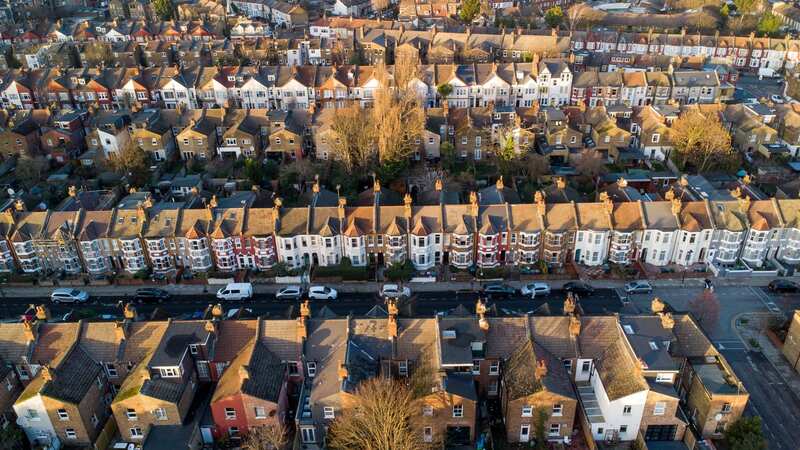'Should I go for a two or five year fixed mortgage?' Pros and cons explained

Mortgage rates have reached the highest level the UK has seen for 15 years - so whats the best option for you if your deal is coming to an end soon?
The Bank of England (BoE) recently announced that its base interest rate was to rise by 0.25 percentage points taking it to 5.25%. This means variable rate deals will become even more expensive, while fixed rates have reached a 15-year high.
According to MoneyFacts.co.uk, the average two year fixed rate deal sits at 6.85% while the average five year fix is at 6.35%. If your current mortgage term is coming to an end soon, you may be wondering what your best options are at the moment.
Currently, longer deals offer cheaper rates but if interest rates come down sooner rather than later, you may be stuck paying above the odds until your deal ends. The Mirror asked mortgage experts to highlight to major pros and cons for each of these options to help you make the decision that is right for you.
Before making any big decisions on your mortgage plan, you should always speak to a professional mortgage broker first. In the end, it all comes down to your personal circumstances.
 8 money changes coming in February including Universal Credit and passport fees
8 money changes coming in February including Universal Credit and passport fees
What are the pros and cons of fixing your mortgage for two years?
Pros
Tabitha Cumming, a property expert from The Lease Extension Company, said the first pro of a two year fixed rate is your mortgage repayments will remain the same for two years. This will provide you with stability for the foreseeable future.
Knowing exactly how much you need to pay per month can really help you organise your finances, particularly with the current cost of living levels at the moment.
Tabitha explained: "In comparison to other fixed rate mortgages, you will not be locked in for as long and any early exit fees will be more affordable and you will not be affected by rising interest rates, and will likely pay less than you would on a variable rate deal."
Most economic forecasts predict that there will be a decline in interest rates within the next two years, meaning a shorter deal may prove more beneficial as you'll be able to switch to a cheaper deal sooner rather than later. The short commitment also works for those who may be thinking about moving in the foreseeable future.
Cons
Two years is a considerable amount of time - the Bank of England's base Interest rate in December 2021 sat at 0.1%. But sadly with the cost of living crisis and inflation, we cannot predict in its entirety what will happen in another two years.
Financial markets are now forecasting the base rate will hit 6% before falling to 5.2% this time in 2025 and 4.5% in 2026. Tabitha explained how interest rates may come down much quicker than we predict but again, it is very uncertain.
Alongside this, those who opt for a two year fix will be back in this situation once again in two years time, which can cause some a feeling of uncertainty. For some, the process of mortgaging every two years can seem endless.
Plus if you want to remortgage sooner, then it's also likely to involve additional costs.
What are the pros and cons of fixing your mortgage for five years?
Pros
Once again, Tabitha noted that the five year fix option will allow you to budget accordingly as you will know exactly how much you are paying each month for the next five years.
You will also be protected from potential increases in interest rates for the duration of the mortgage. This could be a more favourable option for those plan on staying in their home for the next five years at least.
 Big Four banks made £20billion in 9 months as households battled interest rates
Big Four banks made £20billion in 9 months as households battled interest rates
As you are committed to a longer term, the rate you pay on your five year fix is likely to be cheaper than a two year, and you’ll also be clearing more of the balance of the mortgage with the five-year mortgage, rather than just interest.
Tabitha added: "You will also not need to pay as many fees with a five year fixed rate mortgage, and will also have fewer expenses from not having to search for another deal as often."
Cons
Again, with a five year fix you cannot change your deal, so if the interest rate were to decrease, you could miss out on any potential savings that could have been made from this.
Tabitha noted that alongside this, those signing up for the longer fix may need to pay an early repayment charge (ERC), This is a fee applied by your lender if you change the term of the mortgage or repay it before the end of the period.
According to MoneytotheMasses.com, these charges can be as high as 5% of the outstanding balance in year one, often reducing to around 4% in the second year and down to 1% in the final. Two year fixed deals often have these charges start at 2% before dropping.
Due to the term being less flexible, the five year fix may not be considered a favourable option for people who believe their housing circumstances could change in the foreseeable.
Read more similar news:
Comments:
comments powered by Disqus

































